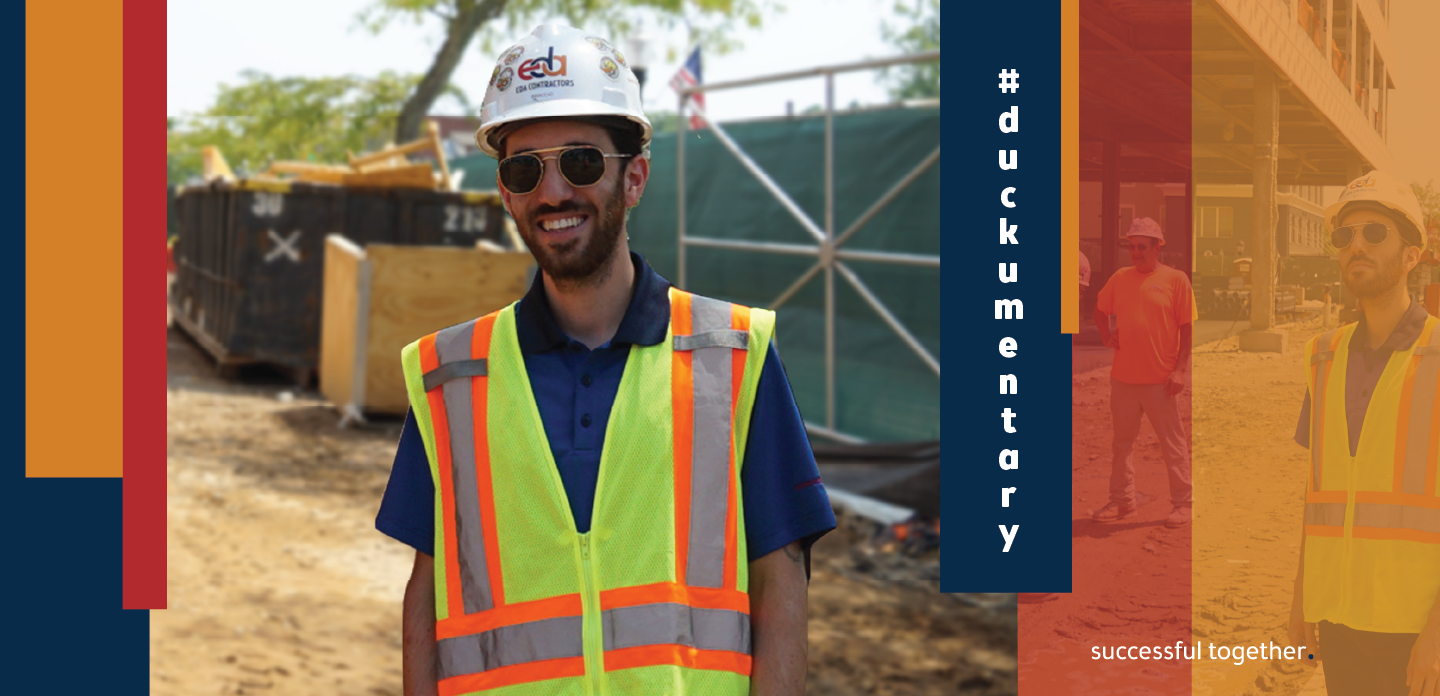Why dedicate a whole month to field appreciation?
Today’s #duckumentary features one of the heads behind EDA’s Field Appreciation Month program, Project Manager Alex Braccio!
As a Project Manager Alex is passionate about the importance of maintaining good relationships between the office and field. Celebrating 4 years with the EDA Family this August, Alex reflects on why showing appreciation is a critical part of living The EDA Way every day.
What’s your favorite part about working in the construction industry?
Every project is different from the last and presents new challenges.
How/When did you start with EDA?
I started working at EDA 4 years ago this month. My background in rainscreens and masonry cladding helped with my transition into commercial façade installation.
What is your favorite project you’ve worked on at EDA?
The U Penn Meeting and Guest House project was one of my favorites to work on. It was a design-assist project, which taught me a lot about estimating and client relationships.
What is an example you can remember of when you had to work with the field to make sure the project was still meeting it goals? (AKA, when was a time you and the field were successful together?)
The K-MART Reuse project was one with an aggressive schedule and a new material manufacturer we haven’t used before. We had a detailed pre-construction meeting with our foreman and superintendent to review the obstacles to a successful project and come up with a specific plan to overcome them. Frequent site visits with our crew and the [General Contractor] helped get on site problems resolved faster so we could keep moving in a positive way.
Why is it important that we dedicate a whole month to participating in Field Appreciation?
Respect and Communication. It’s hard to see things from someone else’s perspective if you never engage with them where they are. By seeing jobsite conditions firsthand and talking with our field teams we can better understand the world in which they work. When people believe they are being heard and understood, it builds trust and gains respect, leading to more effective communication between the field and office.
